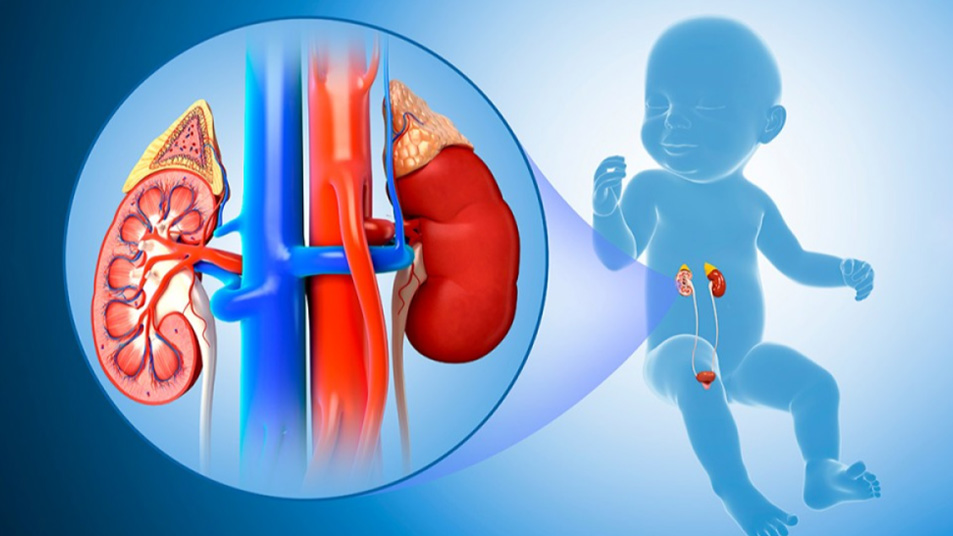
Paediatric Urologist in Chiplun, Pediatric Urology Surgery in Konkan
Pediatric urology, a medicinal branch comprises of the urinary-tract system which includes kidneys and bladder. These urologic disorders are frequently identified in utero, or when the fetus is still inside the mother's body. Boys and girls both experience the same situations.
Specialization of Urology called Pediatric Urology is dedicated to the diagnosis, treatment, and management of genital and urinary issues in children.
A pediatric urologist is a physician with expertise in the diagnosis and treatment of conditions pertaining to the genitourinary tract, which includes the urinary system and genitalia in infants and children.
Certain conditions that impact child's urinary system can be treated by a Pediatrician. However, a family doctor will refer a Pediatric Urologist for more specialized care if they feel that the child's symptoms or condition are outside of their area of competence.
Organs which affects the child :
Kidneys.
Ureters (the tube that carries pee from your kidney to your bladder).
Bladder.
Urethra.
Testicles.
Penis.
Vagina.
When to consult a Pediatric Urologist?
Pediatric urologists handle any ailments pertaining to the urinary tract in newborns, kids, or teenagers. Additionally, this may apply to their reproductive system. Certain urinary disorders are evident from birth, while others develop as your kid grows older.
Some of the specific conditions a pediatric urologist in the child…
Birth defects or abnormalities pertaining to the urinary system. This covers ailments including varicocele, hydronephrosis, and vesicoureteral reflux.
Urinary stones, Kidney stones, or bladder stones.
Recurrent obstructions or urinary tract infections (UTIs).
Testicle enlargement or testicles that have not descended.
Inguinal hernias.
Irregularities in Vagina.
Urologic organ cancer.
Hematuria, or blood in the pee.
Frequent daytime accidents or bedwetting as a result of incontinence or the inability to hold urine in.
Problems associated with neurological conditions like spina bifida or spinal cord injuries.
Issues related to neurological disorders such as spinal cord damage or spina bifida.
Surgical Procedures for Pediatric Urological Conditions :
Pediatric urological conditions require a three-fold treatment as mentioned below :
1.Non-invasive treatments
2.Minimally invasive treatments
3.Reconstructive surgery treatments
Non-invasive treatments :
Following are the methods under this aspect of treatment -
Muscle control is taught through the mind-body therapy known as biofeedback.
Pelvic floor training for neurogenic bladder
Medications and dietary guidance
Ultrasound imaging to diagnose disorders related to fetal urology
Minimally invasive treatments :
Robotic surgery has made it possible to treat juvenile urological diseases with fewer complications and smaller incisions. Additionally, there is less scarring and quicker healing, resulting in a much shorter recovery period. The minimally invasive robotic or laparoscopic techniques used to treat different juvenile urological issues are listed below.
Technique of Mitrofanoff and bladder augmentation to treat neurogenic bladder.
Restoring the ureteropelvic junction (UPJ) via pyeloplasty
The treatment of vesicoureteral reflux with urinary reimplantation
Reconstructive surgery treatments :
Congenital adrenal hyperplasia (CAH), neurogenic bladder, and bladder exstrophy are among the disorders that these operations are mostly used. The following are a few pediatric urological problems and the accompanying surgical procedures for them.
Surgery to treat neurogenic bladder, such as stoma implantation, urine diversion, or bladder outlet surgery (bladder neck reconstruction with sling installation).
Complete primary repair to rectify bladder exstrophy
Reconstructing the glands to restore normal function (CAH) in case of congenital adrenal hyperplasia
Restoring hypospadias to create a normal urinary flow Pediatric urology issues might vary widely, but they can all be promptly resolved with the right diagnosis and care. Early intervention aids in the treatment of these issues so your kid can grow up disease-free and healthy.
